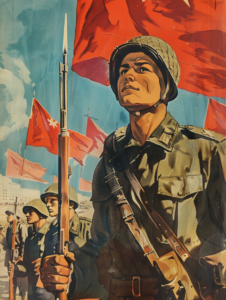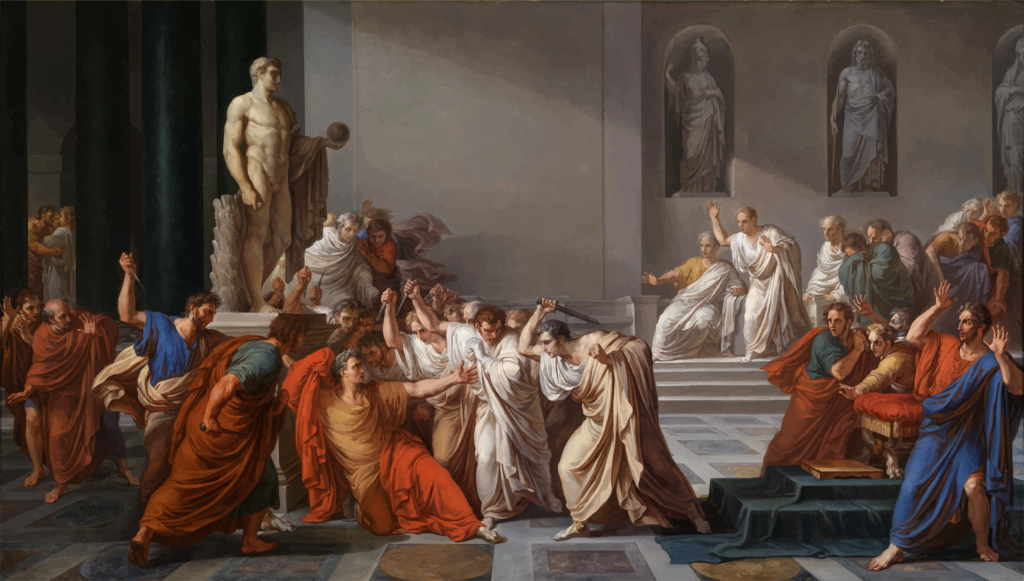
As the war engulfed the globe, governments on all sides recognized the vital importance of controlling the narrative. In Nazi Germany, Joseph Goebbels, the Minister of Propaganda, orchestrated a relentless campaign of misinformation and indoctrination. Through the pioneering use of radio broadcasts, film, and printed media, the Nazi regime disseminated its twisted ideology, vilifying Jews, demonizing enemies, and glorifying the German war effort. The infamous propaganda machine of the Third Reich played a central role in mobilizing the German populace for war, fostering a fanatical devotion to the cause.
Across the Atlantic, Allied powers recognized the necessity of countering Axis propaganda with their own messaging. In the United States, the Office of War Information (OWI) spearheaded efforts to shape public perception and bolster support for the war effort. Iconic posters featuring Uncle Sam and Rosie the Riveter became emblematic of American propaganda, urging citizens to enlist, conserve resources, and contribute to the war on the home front. Moreover, Hollywood played a crucial role, churning out patriotic films that depicted the heroic efforts of Allied forces and portrayed Axis powers as malevolent adversaries threatening freedom and democracy.
Heading H1
Heading H2
Heading H3
Heading H4
Heading H5
Heading H6
The impact of propaganda extended far beyond the battlefield, permeating every aspect of civilian life. In occupied territories, both Axis and Allied powers sought to sway public opinion and undermine resistance movements through targeted messaging and psychological warfare. Resistance groups clandestinely distributed leaflets, radio broadcasts, and underground newspapers to counter enemy propaganda and bolster morale. Meanwhile, in the Pacific theater, Japanese propaganda aimed to instill fear and submission among conquered populations, while Allied forces utilized psychological tactics to weaken enemy resolve and foster defection.




In retrospect, the legacy of World War II propaganda serves as a testament to the power of information in shaping the course of history. It underscores the enduring lesson that perception can be as formidable a weapon as any artillery piece or battleship. Moreover, it serves as a cautionary tale about the dangers of manipulation and the importance of critical thinking in the face of propaganda. As we reflect on this tumultuous chapter in human history, we are reminded of the profound impact of propaganda in shaping minds, winning wars, and shaping the destiny of nations.
Martians rattle
- He heard the Martians rattle for a time and then become still.
- The giant saved Woking station and its cluster of houses until the last; then in a moment the Heat-Ray was brought to bear, and the town became a heap of fiery ruins.
- Then the Thing shut off the Heat-Ray, and turning its back upon the artilleryman, began to waddle away towards the smouldering pine woods that sheltered the second cylinder.
- As it did so a second glittering Titan built itself up out of the pit.
Since then he had been skulking along towards Maybury, in the hope of getting out of danger Londonward. People were hiding in trenches and cellars, and many of the survivors had made off towards Woking village and Send. He had been consumed with thirst until he found one of the water mains near the railway arch smashed, and the water bubbling out like a spring upon the road.
That was the story I got from him, bit by bit. He grew calmer telling me and trying to make me see the things he had seen. He had eaten no food since midday, he told me early in his narrative, and I found some mutton and bread in the pantry and brought it into the room. We lit no lamp for fear of attracting the Martians, and ever and again our hands would touch upon bread or meat. As he talked, things about us came darkly out of the darkness, and the trampled bushes and broken rose trees outside the window grew distinct. It would seem that a number of men or animals had rushed across the lawn. I began to see his face, blackened and haggard, as no doubt mine was also.
The impact of propaganda extended far beyond the battlefield.
When we had finished eating we went softly upstairs to my study, and I looked again out of the open window. In one night the valley had become a valley of ashes. The fires had dwindled now. Where flames had been there were now streamers of smoke; but the countless ruins of shattered and gutted houses and blasted and blackened trees that the night had hidden stood out now gaunt and terrible in the pitiless light of dawn. Yet here and there some object had had the luck to escape–a white railway signal here, the end of a greenhouse there, white and fresh amid the wreckage. Never before in the history of warfare had destruction been so indiscriminate and so universal. And shining with the growing light of the east, three of the metallic giants stood about the pit, their cowls rotating as though they were surveying the desolation they had made.





